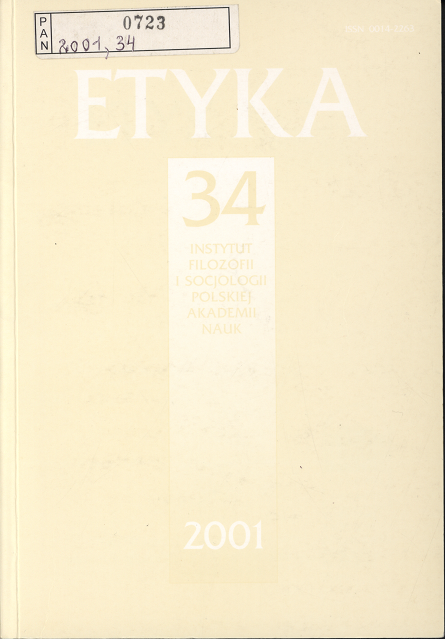Jak umiera człowiek?
Abstrakt
Human life is a process. It is the process of becoming and ceasing to be a human being and it is a process of becoming and ceasing to be a human person. I accept the distinction between being a human being and being a human person and distinguish further – future, present, and past human persons. The main problem of the paper is when do we become past persons? Having distinguished and presented four distinctive modi of human dying (hospital death, hospice death, nursing home death, and death at home) I concentrate on the problem of good death and ask what are the goods of the dying person. The goods are: life, the good of the mind, the good of the body, the good of the communal life, and (paradoxically) the good of death. The decision who is a terminal patient is a moral one and implies two different strategies with regard to life: the affirmation of life, and the affirmation of death strategy. The first one, based on the concept of respect for human life, ignores the value of human dignity. The second one assumes that we should respect not only human biological life, but the whole human person, and we cannot respect the whole person if we do not respect her freedom of choice and her right to self-respect. Care for the artificially sustained but absolutely personless human life, is not a proper terminal care but rather is post-terminal care, and as such requires other, special justification.Pobrania
Opublikowane
Numer
Dział
Licencja
Prace publikowane w czasopiśmie ETYKA udostępniane są na podstawie licencji Creative Commons Attribution No Derivatives 4.0 International (CC BY-ND), tj. uznanie autorstwa-Bez utworów zależnych. Oznacza to, że Autorki i Autorzy zachowują autorskie prawa majątkowe do utworów i wyrażają zgodę, aby ich prace były zgodnie z prawem ponownie wykorzystywane do dowolnych celów, także komercyjnych, za wyjątkiem tworzenia utworów zależnych (dzieł pochodnych), bez konieczności uzyskania uprzedniej zgody ze Autora lub wydawcy. Artykuły mogą być pobierane, drukowane, powielane i rozpowszechniane z zastrzeżeniem konieczności poprawnego oznaczenia autorstwa oraz oryginalnego miejsca publikacji. Autorzy zachowują prawa autorskie do wspomnianych utworów bez innych ograniczeń.



